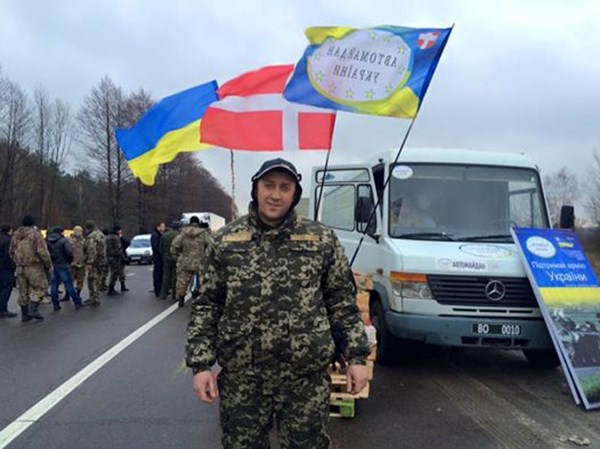Activists block Russian trucks in four regions in Ukraine
In the Volyn, Zakarpattya, Ivano-Frankovsk and Lvov regions, activists are blocking Russian trucks moving to and from the border. In the Zakarpattya region, activists, including members of the Ukrainian Armed Forces, began the blockade yesterday evening. They are refusing Russian trucks moving towards the border at the border crossing checkpoint, Nijnie Vorota (the lower gate), about 100 kilometers from Uzhgorod.
In the Volyn region, the blockade began at 8 o’clock in the morning. "The blockade has begun, as planned, this morning. Four trucks have already been sent back from the Volyn region. Customs was warned yesterday that the blockade would take place. Trucks are being sent back to the Belarusian border point. Now, those vehicles that were not allowed to pass the border at Zakarpattya are turning back. We have also asked them to wait. It’s more likely that we will suggest an exchange of these trucks for Savchenko and other captured people," said the blockade organizer, Sergey Kushnir.
“One of our trophies is a truck with Russian license plate numbers and "Georgian ribbon" transporting apples,” stated Kushnir. As stated by the activists, it will be not released and it will be held for the duration of the blockade. In Ivano-Frankovsk region the trucks are stopped on the Yablunytsky and Vyshkovsky passes. These actions are supported by the Lvov region as well. According to police forces, more than 20 activists are checking trucks on the Kiev-Chop road in Konyukhov. They stop trucks with Russian license plate numbers on the road from the Lvov region moving towards Zakarpattya. Police officers are working there as well. No violations have been made yet, as reported by the TV Channel, 112 Ukraine.
Since the 1st of February, all cargo transport between Russia and Poland has been stopped. The parties have reached an agreement, but only in regards to the Russian trucks that are currently in Poland. These trucks will be able to return to Russia by the 15th of February under the agreements made in 2015. Since early February, Russian trucks have started going to Europe through Ukraine.
